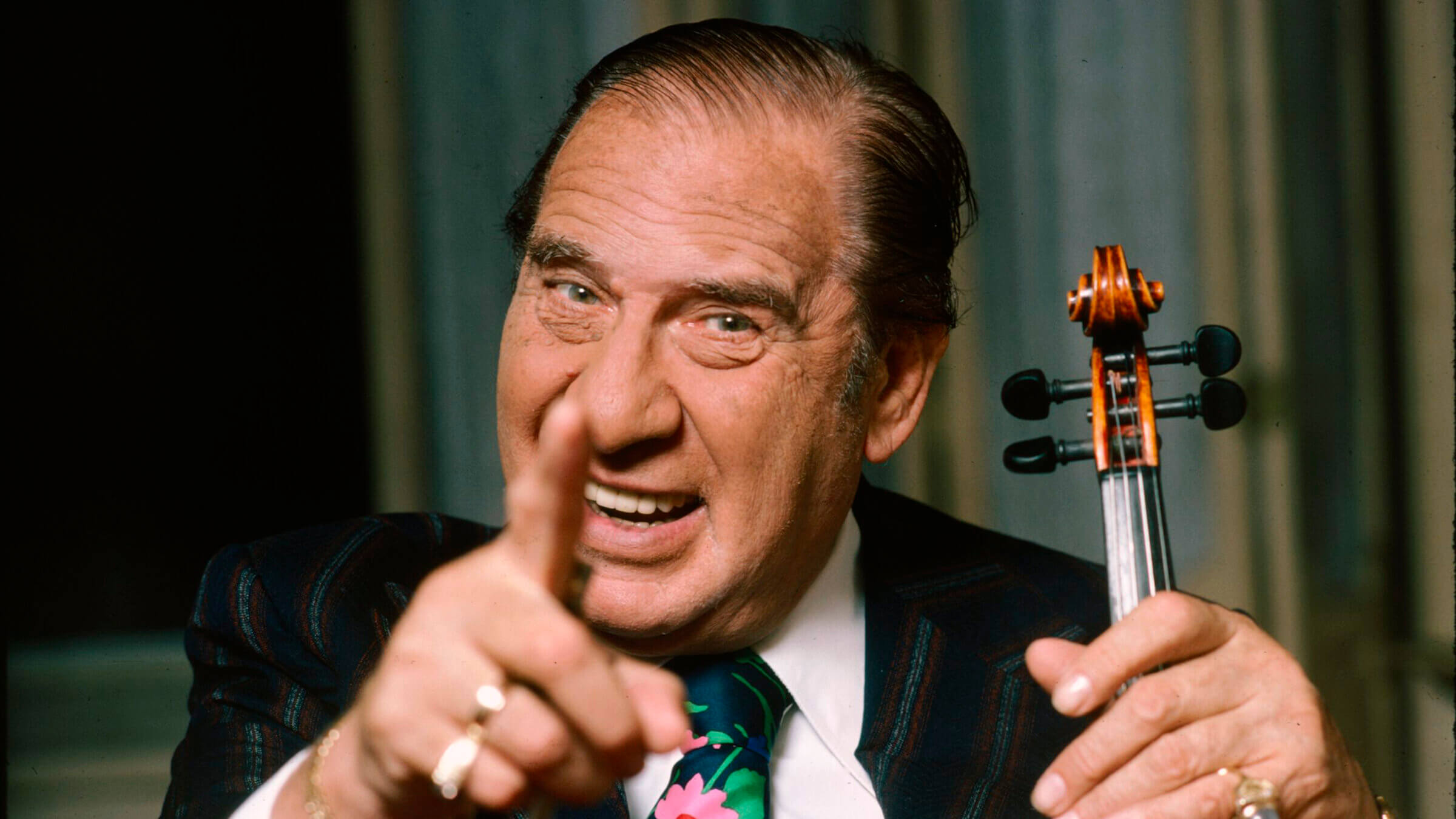Has the Jewish joke become an endangered species — Òu sont les blagues d’antan?
In ‘The Last Jewish Joke,’ eminent Parisian sociologist Michel Wieviorka laments the passing of an era in Jewish humor

Comedian Henny Youngman, circa 1978. Photo by Getty Images
Is the Jewish joke on the verge of becoming extinct? The Last Jewish Joke, written by the veteran Parisian sociologist Michel Wieviorka, and newly translated into English by Cory Stockwell, argues that in recent years, Jews began to seem less heimish for at least three reasons: The Holocaust receded from memory; Israel’s government became guilty of actions decried internationally as war crimes; and right-wing antisemites who were always present became more boldly vocal.
Reminiscing about when he heard certain jokes, the author compiles his own consoling self-portrait in an autumnal mood. Wieviorka will be 80 next year, and his prose has a tendency to poignantly deem things as the “last” or at their “end.”
English language readers may need to be reminded that, when Wieviorka alludes to family situations in which he first heard Jewish jokes, it is in the context of his distinguished family of overachievers. His sister Annette is an eminent historian of the Holocaust. Another sister, Sylvie, is a psychiatrist and academic, and a brother, Olivier, is a historian specializing in World War II and the French Resistance. The entire mishpocheh is inspired and motivated by the memory of their paternal grandparents, Polish Jews who were murdered at Auschwitz. Indeed, Annette Wieviorka recently published a “family autobiography,” which asked subtle, eloquent, and nuanced questions about her antecedents.
In a comparable emotional aura of reverence, Wieviorka characterizes Jewish comedy of the past as “never malicious” (though apparently insult comics like Jack E. Leonard, Don Rickles, and Joan Rivers never got the memo).
The notion that joking Jews had to be sympathetic victims to elicit empathy from non-Jewish audiences may be true of some raconteurs, but is also belied by historical examples of potty-mouthed rapscallions like Belle Barth, B. S. Pully (born Murray Lerman) and Joe E. Ross (born Joseph Roszawikz), who startled nightclub audiences of their day with profanity.
Later Jewish shock jocks of the Howard Stern variety likewise chose to surprise, rather than charm, the public as a way to win notoriety. And Larry David’s Curb Your Enthusiasm, far from relying on vulnerable Jews as victims, presented characters screaming putdowns to elicit hilarity.

To bolster his arguments, Wieviorka refers to the counterexample of Popeck (born Judka Herpstu), a demure, wry entertainer of Polish and Romanian Jewish origin, who at 90 still appears at French theaters with gentle monologues akin to those of the Danish Jewish wit Victor Borge. Popeck presents himself onstage as a grumpy Eastern-European immigrant speaking Yiddish-accented French.
Wieviorka values such exemplars of rapidly vanishing tradition; as a social scientist, he is convinced that because communal settings such as the Borscht Belt no longer exist, the comics who once flourished on hotel stages in the Catskills have disappeared from memory.
To be sure, American standups like Myron Cohen, Jan Murray, and Carl Ballantine, once familiar from TV variety shows, are rarely mentioned now, though others like Eddie Cantor are periodically rediscovered by a new public, as Cantor was when he showed up as a character in HBO’s Boardwalk Empire. But in his autobiographical deep dive, Wieviorka, who writes here more as a memoirist than a history of comedy, is naturally more concerned with things that he personally saw or heard, rather than any objective history of Jewish comedians through the ages.
Wieviorka also somewhat curiously refers to the “Yiddish-inflected” comedy of Groucho Marx. Apart from the word “schnorrer” which appears in “Hooray for Captain Spaulding,” a song written by Harry Ruby and Bert Kalmar, it is difficult to think of many other explicit Yiddishisms in Groucho’s verbal elan.
Wieviorka’s anecdotes tend to be hefty and hearty, like a family repast of kreplach that remains in the visceral memory for days after being consumed. Some of the quaintly old fashioned tales he refers to recall the precedent of Sigmund Freud’s The Joke and Its Relation to the Unconscious, a dissection of pleasantries that reflects a sturdy Yekke approach to light-heartedness. Of course, in this optic of Jewish humor, there is no room for concise one-liners from the likes of Henny Youngman or Rodney Dangerfield (born Jacob Cohen). For Wieviorka, as with Freud, brevity was so far from being the soul of wit that it might almost seem non-Jewish.
Another of Wieviorka’s claims appears to conflict with Jewish tradition itself, such as when he states that funny Jews laugh at themselves, never at others, negating the othering of mocked and disdained people in Chelm, a legendary village in Yiddish folklore inhabited by fools who believe themselves to be wise.
To support some of his claims, the author discusses the 1970s French film The Mad Adventures of Rabbi Jacob, a box office success, now somewhat frantic and dated-looking, starring the popular Gallic comedian, Louis de Funès disguised as a rabbi. More to the point, Wieviorka justly reveres the French Jewish comedian Pierre Dac for his still-fascinating wartime broadcasts from London for the Free French forces. Dac’s sense of humor simultaneously expressing Yiddishkeit and also undermining the enemy’s Fascist ideology is a subject that might have intrigued Freud himself.
To bolster the essentially serious messages of his book, Wieviorka mentions the writers Elie Wiesel and André Schwarz-Bart as well as the painter Marc Chagall, names rarely seen in books about humor.
Wieviorka’s elegiac, end-of-an-era tone might be cheered up by a glance at the Netflix streaming schedule or a visit to a comedy club. Of course Jewish humor is thriving, as Wieviorka himself admits; Le Monde headlined a relevant story about the aftermath of the Oct. 7 attacks, “Israeli comedians are boosting morale in wartime.”
So, for all its methodical, highly intellectual analysis, The Last Jewish Joke might be best appreciated as a moving Kaddish for the demise of anecdotes that were once considered the height of drollery. It is very much a product of brainy French Jewish creativity, which itself deserves to be cherished and celebrated.

















